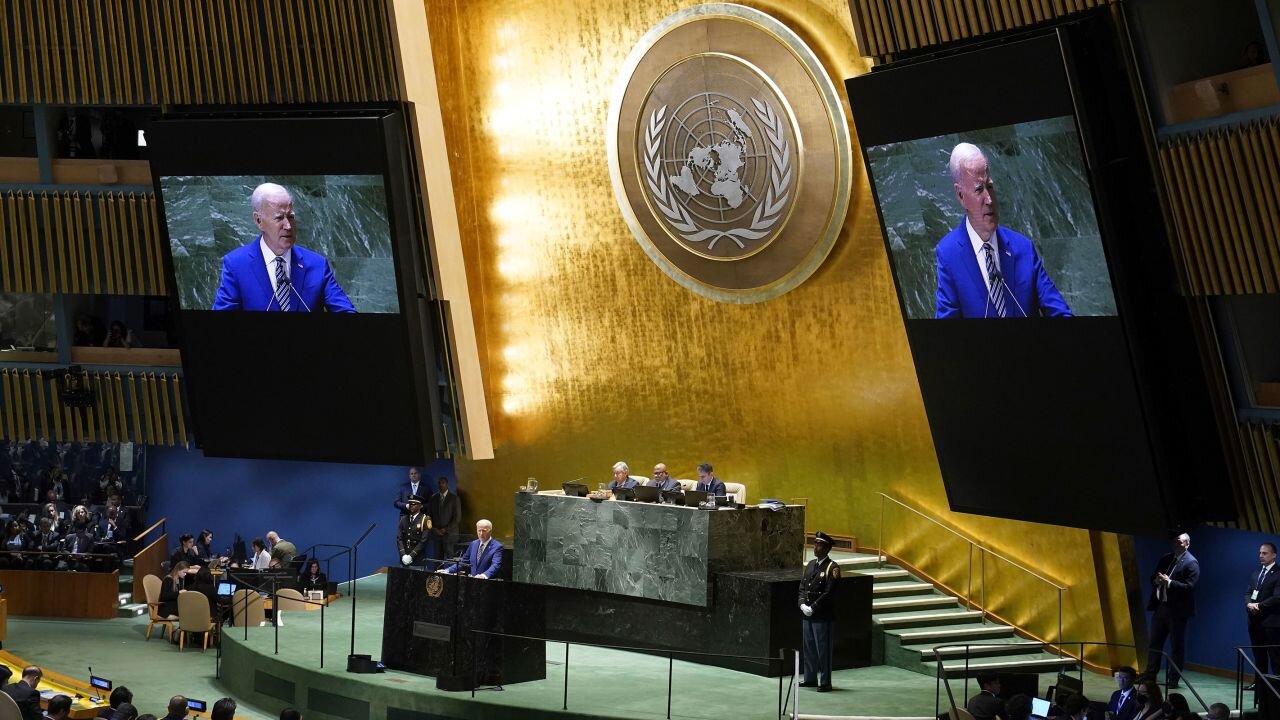The US support for the expansion of the United Nations Security Council (UNSC), whose task is to maintain global peace and security was among the topics that the US President addressed during his speech. Reforming the UNSC has been also requested by other members of the United Nations in recent years.
Currently, the UN Security Council has five permanent members enjoying veto power and 10 non-permanent members. The chairmanship of this council is periodic and its duration is one month, and the head of the delegation of each country is known as the head of this council. Russia, China, the USA, the UK and France are the five permanent members of the Security Council with veto power.
The non-permanent members of the Security Council are elected by the United Nations General Assembly, which is based on the participation of the members of this organization in maintaining global peace and security and other goals of the organization, as well as equitable geographical distribution. In other words, 10 non-permanent members of the Security Council are elected by the General Assembly for a two-year term.
A couple of months ago in June 2023, the Washington Post reported that Joe Biden's administration is trying to prepare a plan for the expansion of the UN Security Council, based on which 6 more permanent members will be added to the council of course without having the right to veto.
According to the report by the Washington Post, the Joe Biden administration is consulting with the member states of the United Nations to get their support for the Washington proposal.
Numerous conflicts and wars around the globe in the past decades show that the current structure of the UN Security Council is not very effective and the council has not been able to fulfill its main mission, which is to maintain global peace and security. Therefore, reforming the structure of the UNSC is necessary and important to establish global peace and security.
In the meantime, the attention of UN member states to several points will be very important in determining their fate and the world community:
1- The possible future reforms and changes in the Security Council and other international commercial and financial organizations should not be superficial so as to provide the world powers, particularly the US with new opportunities to secure their own interests like what happened after the end of World War II.
2- The current world orders in different fields are unfair and ineffective. Understanding this fact and facing US unilateralism and using the dollar as a weapon against its rivals, many countries have started to create parallel organizations such as BRICS and the Shanghai Cooperation Organization to secure their own interests.
3- It should be determined what effect the addition of new members without having the right of veto can have on the effectiveness of the UNSC and preventing unilateralism at the world level. What is clear is that much of the chaos and conflicts in the world in the past decades have been created by the unilateralist policies and actions of the US and its veto-powered allies.
4- It should be determined how fair the distribution of these 6 new seats will be among the new members, for example, will there be a permanent seat for many voiceless nations of the world, including Muslims and the people of West Asia?
5- It is important for other countries of the world to be vigilant and not to let the US bring its allies into the international decision-making bodies like the UNSC under the cover of reforms in order to stabilize and legitimize its own position by taking the leadership of reforms in international institutions.
6-Reforms in international structures should not become a tool in the hands of the US to contain its current global competitors and rivals by giving a concession to an ally country in one specific part of the world by supporting its entry into the Security Council.
7- It should be noted that the reforms considered by the US should not be a tool and cover to weaken the rising international institutions and organizations such as BRICS and the Shanghai Cooperation Organization, etc., which in the future will challenge the US dominance and hegemony on the world economy, trade and security.
In conclusion, reforming the structure of the Security Council and other international institutions is necessary and inevitable, but the international community should be vigilant. They should not let the Americans, by taking the initiative again, use this issue as a tool and approach to secure their own global dominance and interest at least for more than another 50 years at the cost of other nations. Countries should be careful that the US is trying to bribe some countries by supporting their permanent membership in UNSC (of course without veto right) in different parts of the world not only to legitimize its actions and measures but also to use these new members as a tool to contain its main rivals and weaken newly established organizations like BRICS and etc to its own benefit.
Finally, it is worth noting that the US has already supported the addition of Germany, Japan and India as new permanent members, and France and the UK have also supported permanent seats for Germany, Japan and India, plus Brazil and at least one African country.






Leave a Reply